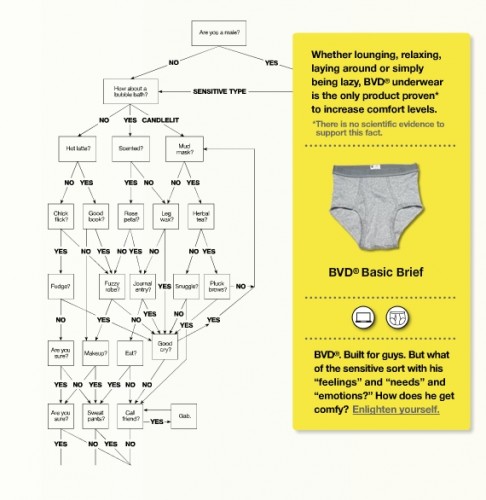Both my colleague, my friend, and a reader (that’d be John L, Dmitriy T.M., and Jillian Y.) sent along this month’s cover of Newsweek. FOX News and Palin both are calling it “sexist” and “demeaning”:

I have to agree with FOX News here. Sexualizing a woman is a way to make her seem less important. It’s, literally, to disempower her. This magazine cover tells us that we shouldn’t take Palin seriously. With her short shorts, sexy legs, pigtails, and friendly smile, it turns her into a political joke.
But this is about more than gender; it’s about the relationship between power and sex in our society. Because we so frequently see sex as a power struggle, to be presented as a sexual object is to be presented as passive, consumable, inert (remember, only one person gets “fucked”). While both men and women can be presented as sexual objects, because of sexism, this particular tool can be used more effectively against women than men. (And when it is used against a man, it often has the effect of feminizing him, making an association with femininity/sexual subordination the very thing that disempowers him. Ah the tangled web of sex, sexuality, gender, and power.)
Whether you think Palin should or shouldn’t be taken seriously is irrelevant here. What is interesting is just how much Newsweek can do to influence the public one way or another, even if all they do is see the cover.
Images matter.
For comparison, I did a quick search for Newsweek covers featuring the last election’s Presidential and Vice-Presidential candidates for comparison. Compare:


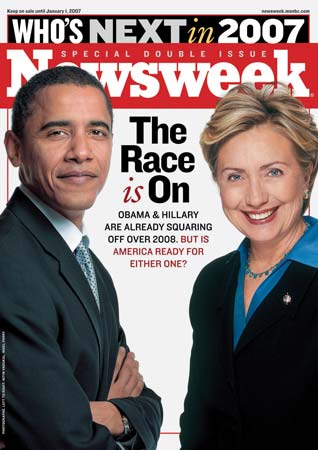
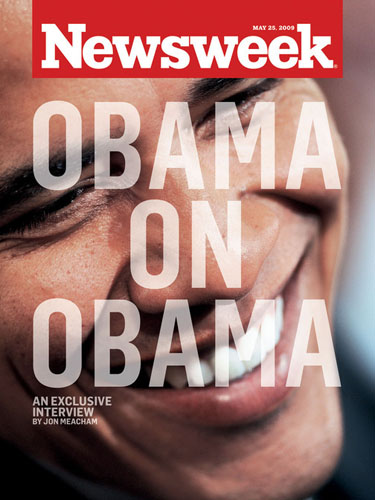

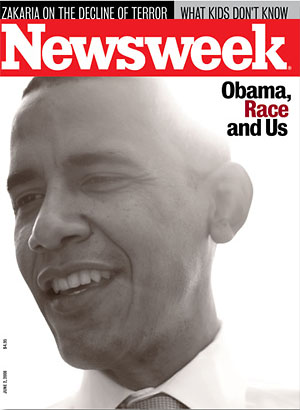




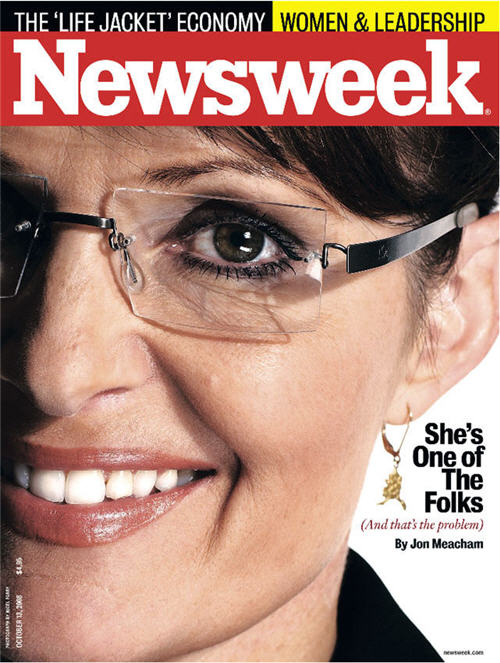

For more examples of the sexualization of Palin, see here, here, and here.
And for more on the relationship between sex and power, see these posts: power one, two, three, four, five, six, seven, eight, nine, ten,and, eleven.
(Sources: here, here, here, here, here, here, here, here, here, here, and here.)
—————————
Lisa Wade is a professor of sociology at Occidental College. You can follow her on Twitter and Facebook.

















